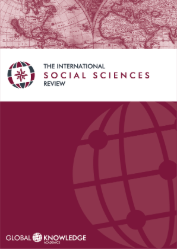The Development of Mobile Money and the Politics of Financial Inclusion in Tanzania
DOI:
https://doi.org/10.37467/gka-socialrev.v1.2088Keywords:
Tanzania, Mobile Money, Financial Inclusion, Technology, Innovations, Deogratius Mhella, Deogratius Joseph Mhella, University of Bristol, 8th International Congress on Technology, Science and Society,Abstract
This paper analyses the development of mobile money in Tanzania and the politics of financial inclusion that enhanced it. Mobile money has played a significant part in reaching the financially unreached and excluded people overtaking banking and other financial services in Tanzania. There is no doubt that mobile money emerged at a time when financial exclusion was a major issue, and that the advent of mobile money was opposed by the banks who thought that it was entering the money business, and that the banks were in a better position to do money business better than any other institutions. For this reason, it is crucial to understand the development of mobile money and the politics of financial inclusion that allowed it to succeed. I have chosen the case study of Tanzania because not only that mobile money has thrived there, but also mobile money as we perceive it today was firstly invented by the e-Fulusi, a Tanzanian company, and failed before it was relaunched in Kenya by MPesa and succeeded. Moreover, the development of mobile money and the politics of financial inclusion have proven their importance in fighting financial exclusion and in increasing access to formal financial services for the poor, which is key to economic growth and poverty alleviation.Downloads
Global Statistics ℹ️
|
754
Views
|
1378
Downloads
|
|
2132
Total
|
|
Downloads
Published
How to Cite
Issue
Section
License
Those authors who publish in this journal accept the following terms:
-
Authors retain copyright.
-
Authors transfer to the journal the right of first publication. The journal also owns the publishing rights.
-
All published contents are governed by an Attribution-NoDerivatives 4.0 International License.
Access the informative version and legal text of the license. By virtue of this, third parties are allowed to use what is published as long as they mention the authorship of the work and the first publication in this journal. If you transform the material, you may not distribute the modified work. -
Authors may make other independent and additional contractual arrangements for non-exclusive distribution of the version of the article published in this journal (e.g., inclusion in an institutional repository or publication in a book) as long as they clearly indicate that the work was first published in this journal.
- Authors are allowed and recommended to publish their work on the Internet (for example on institutional and personal websites), following the publication of, and referencing the journal, as this could lead to constructive exchanges and a more extensive and quick circulation of published works (see The Effect of Open Access).













